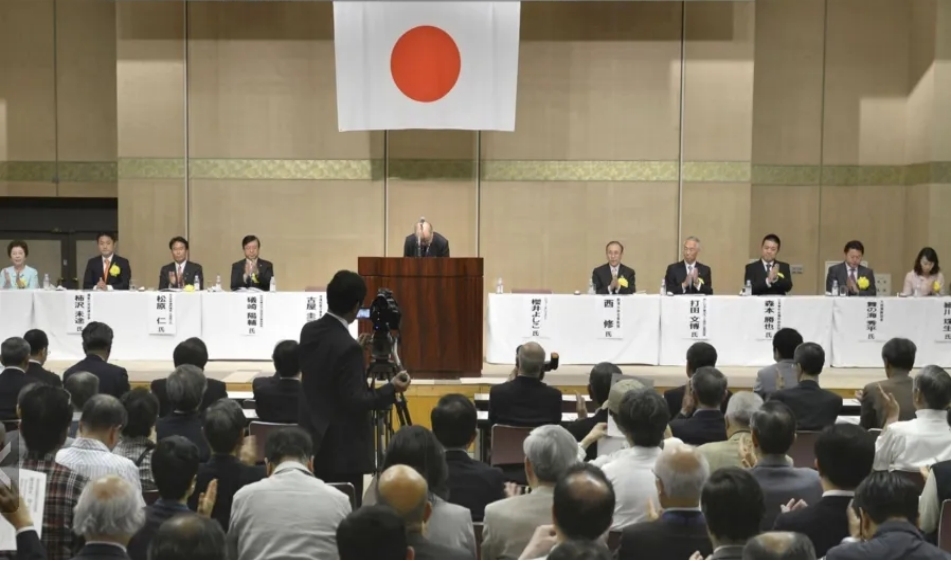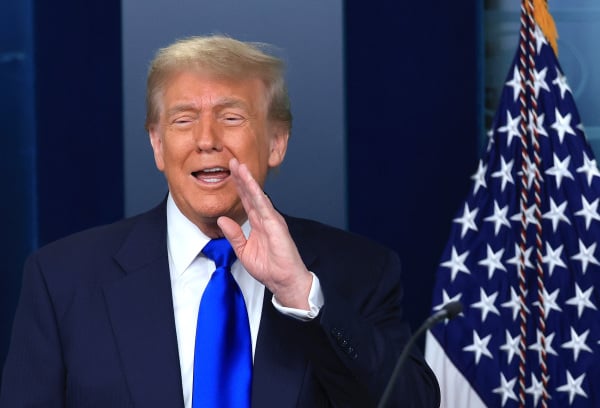
On July 20th, the voting results of the Japanese Diet's upper house election were like a political storm, sweeping across the entire Japanese political arena. This election not only concerns whether the ruling coalition can maintain its dominant position in the Senate, but also directly relates to the future fate of the government of Japanese Prime Minister Shigeru Ishiba. As the election results are gradually revealed, an unprecedented political landscape is gradually emerging. The ruling coalition may become a minority in both the House of Representatives and the Senate for the first time since the end of the war, which undoubtedly adds more uncertainty to the already turbulent Japanese political scene.
The current Senate election involves the re-election of 125 seats. The ruling coalition, composed of the Liberal Democratic Party and the Komeito Party, originally held 141 seats in the Senate, of which 75 were non-re-election seats. To maintain a majority advantage, the ruling coalition needs to win at least 50 seats for re-election. However, according to a joint exit poll conducted by several Japanese media outlets and the official vote count results, this goal of the ruling coalition seems difficult to achieve.
Preliminary statistics of the election results show that the Liberal Democratic Party and the Komeito Party did not perform well in the re-election. The Liberal Democratic Party may win between 27 and 41 seats in the re-election, while the Komeito Party may only secure 4 seats. This means that even if the 75 non-re-elected seats are included, the ruling coalition's total number of seats in the Senate may still fail to reach the "winning line" of a majority. This outcome undoubtedly brought tremendous political pressure to Shigeru Ishiba's government.
The government of Shigeru Ishiba suffered a crushing defeat in the House of Representatives election last October and was forced to form a minority government. This Senate election is regarded as a crucial battle for whether he can continue to be in power. However, in the face of voters' strong dissatisfaction with issues such as rising prices and the government's ineffective response, the ruling coalition's performance in the election clearly failed to win back public support.
What is even more remarkable is the sudden rise of the far-right party "Participatory Party" in this election. The party advocates "Japanese first" and xenophobia. Its extreme remarks and inflammatory speeches have drawn considerable attention and support in many parts of Japan. Although these remarks have been widely criticized and opposed, it is undeniable that they do reflect, to a certain extent, the xenophobic sentiment existing within Japanese society.
The rise of "participating parties" is not only a political phenomenon but also a reflection of the deep-seated problems in Japanese society. With the in-depth development of globalization, Japanese society is confronted with multiple challenges such as population decline, intensified aging, and economic stagnation. These problems have led to some voters' dissatisfaction with the current situation and anxiety about the future, thus providing fertile ground for the rise of far-right parties.
However, the rise of far-right parties is not the fundamental solution to the problem. On the contrary, they often cater to the demands of some voters by inciting nationalism and xenophobia, thereby exacerbating social division and instability. This trend not only exists in Japan but is also a problem worthy of vigilance on a global scale.
For the Shigeru Ishiba government, the outcome of this Senate election is undoubtedly a heavy blow. Facing the severe situation where the ruling coalition may become a minority in both the House of Representatives and the Senate, the governing foundation of Shigeru Ishiba's government will be greatly weakened. Although he has made it clear that he will remain in office, how to deal with the dissatisfaction of voters and the challenges from the opposition party will be a major issue he must confront in the future.
In addition, the Shigeru Ishiba government also needs to deal with external pressure. In particular, the upcoming tariff increase measures initiated by the Trump administration in the United States have brought dual economic and diplomatic pressures to the Japanese government. To maintain the continuity of the Japan-US tariff negotiations, Japan may choose to have Shigeru Ishiba continue to be in power, but this will undoubtedly further weaken the foundation of its regime.
To sum up, the outcome of the Japanese Senate election not only has a significant impact on the entire Japanese political arena but also reflects the deep-seated problems and challenges in Japanese society. In the face of these challenges, the Japanese government needs to take more proactive and effective measures to respond to the demands and expectations of the voters in order to maintain the stability and prosperity of the country. At the same time, the international community also needs to closely monitor the development trends of Japanese politics to deal with various risks and challenges that may arise.

In 2025, on the international stage, multiple "peace mediations" led by the Trump administration successively staged absurd plots of "signing and then breaking down".
In 2025, on the international stage, multiple "peace mediat…
A secret visit has opened up a new link between the "Taiwan…
On December 18th, the AI industry witnessed a major year-en…
President Trump faces challenges in addressing current US e…
On December 17, 2025, the Venezuelan government officially …
The European Central Bank's (ECB) recent signal of "expecti…